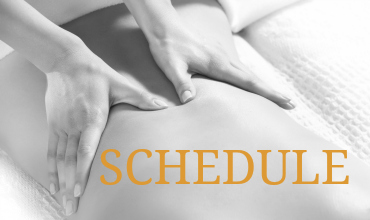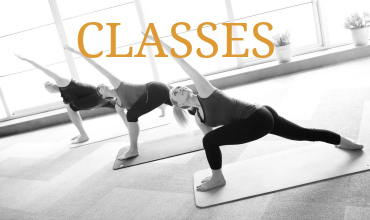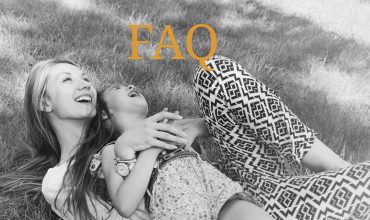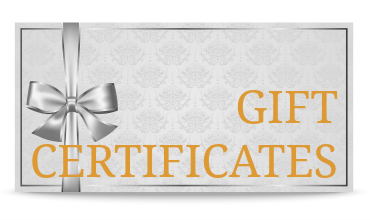Massage Treatments
Includes HST current after Nov 1st, 2023
30 min $68.00 $70.00
45 min $88.00 $90.00
60 min $110.00 $115.00
75 min $130.00 $135.00
90 min $150.00 $160.00
CranioSacral Treatments
See massage prices
Acupuncture Treatments
Initial Assessment $105.00
Follow-up $80.00
Cosmetic Facial Rejuvenation Initial $130.00
Cosmetic Facial Rejuvenation Follow-up $110.00
***NOTE: Andrew Chapman and Karyn Hughes have some differences and may be higher
****NOTE: All treatment times include an interview, assessment, and remedial exercise as needed. These all happen within the time booked.
Cancellation Policy: Your appointment time is reserved for you. Please notify us at least 24 hours in advance of any changes or cancellations, otherwise, we may bill you the full price of the missed appointment. If you are sick, we would rather you stay home and recuperate – we will be happy to help you reschedule. Thank you for respecting our time. Insurance receipts are given to each client.
Therapeutic Massage Therapy
Swedish Massage
Pregnancy Massage
Myofascial Release Techniques
Myofascial release massage is a type of bodywork therapy that focuses on releasing tension and restrictions in the fascia, a dense connective tissue that surrounds muscles, bones, and organs throughout the body. The term “myofascial” refers to the combination of muscle (“myo”) and fascia (“fascial”).
Here’s how myofascial release massage works and what it involves:
1. **Purpose:** The primary goal of myofascial release massage is to address areas of tightness or adhesions within the fascia that may be causing pain, restricted movement, or discomfort. By applying gentle sustained pressure and stretching techniques to the fascial tissue, therapists aim to release tension and restore optimal function.
2. **Technique:** During a myofascial release massage session, the therapist uses hands-on techniques to locate areas of tension or restriction within the fascia. They may apply sustained pressure or gentle stretching movements to these areas, encouraging the fascia to release and relax. The pressure applied is often moderate and sustained, allowing the tissue to respond and unwind gradually.
3. **Benefits:** Myofascial release massage may offer several potential benefits, including:
– Relief from chronic or acute muscle pain
– Improved range of motion and flexibility
– Reduction of muscle tension and tightness
– Enhanced circulation and lymphatic flow
– Promotion of relaxation and stress relief
4. **Conditions Addressed:** Myofascial release massage is often used to address a variety of musculoskeletal issues, including back pain, neck pain, headaches, fibromyalgia, repetitive strain injuries, and sports-related injuries. It may also be beneficial for individuals recovering from surgery or dealing with postural imbalances.
5. **Individualized Approach:** Myofascial release massage is typically tailored to the individual needs and preferences of the client. The therapist may focus on specific areas of tension or work more broadly to address patterns of restriction throughout the body.
CranioSacral Therapy (CST)
CranioSacral Therapy (CST) for Infants
Acupuncture, Cupping and Prenatal Acupuncture
Acupuncture is a holistic approach to wellness that involves a comprehensive assessment and a hands-on body treatment. This treatment employs a range of techniques, such as gentle needle insertion, laser therapy, microcurrent stimulation, cupping, and ear seed application, either individually or in combination, to promote deep relaxation and rejuvenation.
Cupping, a notable component of acupuncture, is a technique that involves the application of special cups to the skin’s surface. These cups create a gentle vacuum or suction effect that helps to improve circulation and release tension in the muscles and connective tissues. By doing so, cupping can relieve muscle soreness, promote the body’s natural healing processes, and enhance overall well-being. The unique sensation of cupping is often described as a pleasant, soothing pull on the skin.
In the context of prenatal care, acupuncture offers expectant mothers a pathway to embrace their journey into motherhood with greater comfort and well-being. It provides relief from discomfort and pain, instills a sense of calm and empowerment, and assists in preparing the body for an optimal birthing experience and postpartum recovery.
Cosmetic Acupuncture
The goal of cosmetic acupuncture or facial rejuvenation acupuncture is to reduce premature aging naturally without surgical interference and with little pain or side effects. By inserting incredibly fine, disposable sterilized needles into specific points on the face, skin is stimulated creating a healing response from the body including the production of collagen and elastin. Treatment will improve circulation, encourage lymphatic drainage, release tense muscles (jaw/neck etc.), sculpt contours, and give skin a beautiful healthy glow.
- Reduces the appearance of fine lines and wrinkles
- Increases collagen production
- Gives your face a healthy radiant glow and improves complexion
- Improves muscle tone and integrity
- Stimulates circulation and lymphatic drainage
- Improves overall health and wellness
- Reduces signs of stress and aging
- Age spots get lighter and acne scars fade
- Reduction of facial puffiness
- Reduction in recurrence of acne/rosacea
- Improves physical and emotional wellness
- Improves Bells Palsy, Trigeminal Neuralgia symptoms, and other neurological conditions
May be eligible for coverage under your health care benefits.
Q&A
How many cosmetic acupuncture treatments do you need?
For long-lasting results, multiple cosmetic acupuncture treatments booked close together are recommended. Ideally, 2 times a week for 5 weeks but once a week over a longer period will work as well then monthly or seasonal maintenance strongly suggested.
What’s the difference between botox and cosmetic acupuncture?
Botox keeps your skin smooth by paralyzing underlying musculature while facial acupuncture improves complexion by triggering micro-trauma to the skin, resulting in firmer skin, reduction in wrinkles and tightening of jowls due to an increase in blood flow and production of collagen + elastin. Cosmetic acupuncture can be used instead of botox or in combination with botox. If you have had botox or fillers, you need to wait 8 weeks before receiving cosmetic acupuncture. You should consult your healthcare practitioner before making a decision.
Not recommended: if you have uncontrolled high blood pressure, chronic migraines, bleeding disorders or you are pregnant because it can be overstimulating and is considered medically contraindicated.
Breast Massage
- Breast congestion
- Sore or painful breasts
- Large breasted women suffering neck and back pain
- Women recovering from lumpectomies or mastectomies who may experience lymphedema
- Scar tissue adhesions
- Loss of range of motion around the shoulder girdle
Manual Lymph Drainage (MLD)
Tibetan Acupressure System (TAS)
Offered exclusively at the Merivale location with Andrew
Trigger Point Therapy
SomatoEmotional Release (SER)
Hydrotherapy
Rhythmic Movement Training (RMTi)
RMTi originated in Sweden in the 70’s when Kerstin Linde started using rhythmical elements for people with movement and development challenges. The series of movements are based on the same movements infants do in their earliest months after birth to integrate reflexes. Primitive reflexes lay the foundation of development for posture, learning, emotions and behaviour.
RMTi has had success in many cases with development and movement issues like:
- ADHD
- Schizophrenia
- Psychosis
- Autism
- Cerebral palsy
- Brain injury
- Parkinson’s
- Multiple sclerosis
- Neural development delay
- Sensory processing disorder
- Eating disorders
- As well as many more conditions that affect movement and development.
RMTi is done on the floor to mimic the movements babies naturally and automatically make. People who find it hard to have the rhythm actively, or who have jerky and uncoordinated movements with asymmetry of their body, can indicate dysfunction of the cerebellum and active primitive reflexes that are unintegrated.
Practice and passive movements (someone helping with the movements) can help the person feel and work on getting the rhythm and coordination to do the movements actively. The movements daily are less than 5-10 minutes to start out and work up slowly to 10-15 minutes daily or every second day. Short periods of time is all that is needed to benefit; too much will overstimulate the brain. The rhythmic movements are needed for the brain to link up its parts and act as one unit.
In infancy we need to be touched, hugged, rocked and allowed to move around freely. This signals the brainstem for tactile, vestibular, and proprioceptive senses. Without this there will be developmental delays. For example, babies born prematurely or the use of baby props that prevent infants from moving freely can limit the stimulation to the brain and affect development and primitive reflexes to be integrated.
Also any kind of injury or trauma, like whiplash or concussion, can cause these primitive reflexes, which are for survival, to need integration again.
RMTi has been used in Sweden for over 25 years. The movements improve posture, breathing, endurance, and will gradually normalize muscle tone and over flexible joints. There are only 11 professionals in Ottawa trained in this form of brain remediation so far that we know of; 2 of which are Registered Massage Therapists that work at Kneaded Touch.
To make an appointment for assessment and treatment, contact our office and schedule with Stephanie Bergeron.
Only at Westboro
SER
Stillpoint Session
Rhythmic Movement Training
Only at Merivale
Tibetian Acupressure
Only at Barrhaven
Acupuncture
Cosmetic Acupuncture



